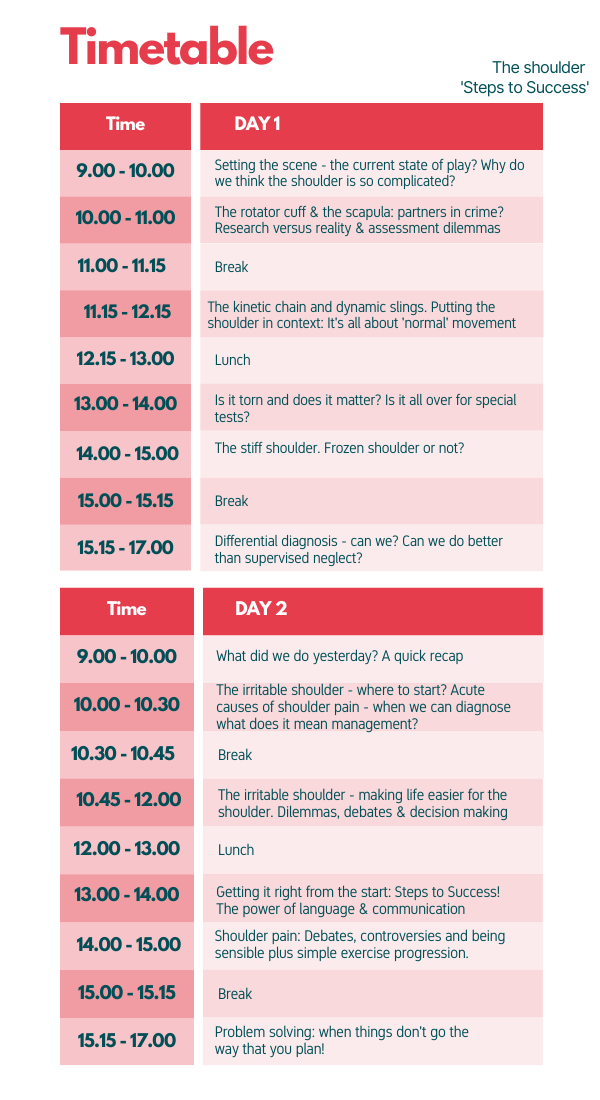The shoulder – Steps to success
The course is constantly updated as a result of emerging evidence and feedback from course participants but essentially reflects the approach Jo uses everyday in clinical practice to the benefit of patients. The course is designed to be honest, fun and interactive and includes plenty of treatment tips and real-life examples.
Description
Taal scholing: Engels - Geaccrediteerd voor; algemeen & manueel register - Kwaliteitshuis: 12 punten - ProQKine: Aangevraagd (24 NE)
This two-day course looks at the current evidence base regarding dynamic stability of the shoulder complex and how it impacts assessment and management. Simple assessment strategies will enable participants to design effective treatment interventions, which reflect the functional needs of patients. The course will look at the challenges of true evidence based practice and how developments in the motor learning and communication literature offer opportunities for enhancing interventions. It will provide participants with a simple and structured approach to the management of the shoulder complex and common pathologies, which is immediately applicable in clinical practice. The course is designed to be fun and informal and incorporates lots of case examples.

Aims:
- To present the current literature regarding dynamic stability of the shoulder complex and explore the application to clinical assessment and treatment.
- To present the current literature regarding the pathophysiology of common shoulder conditions To demonstrate key assessment tools to explore function of the dynamic stabilisers of the shoulder as a basis for treatment planning.
- To demonstrate key treatment approaches based on the current evidence to address dysfunction in the shoulder complex.
- To discuss factors that influence outcome and enhance exercise adherence.
- To consider the importance of communication and language on patient’s pain experience.
